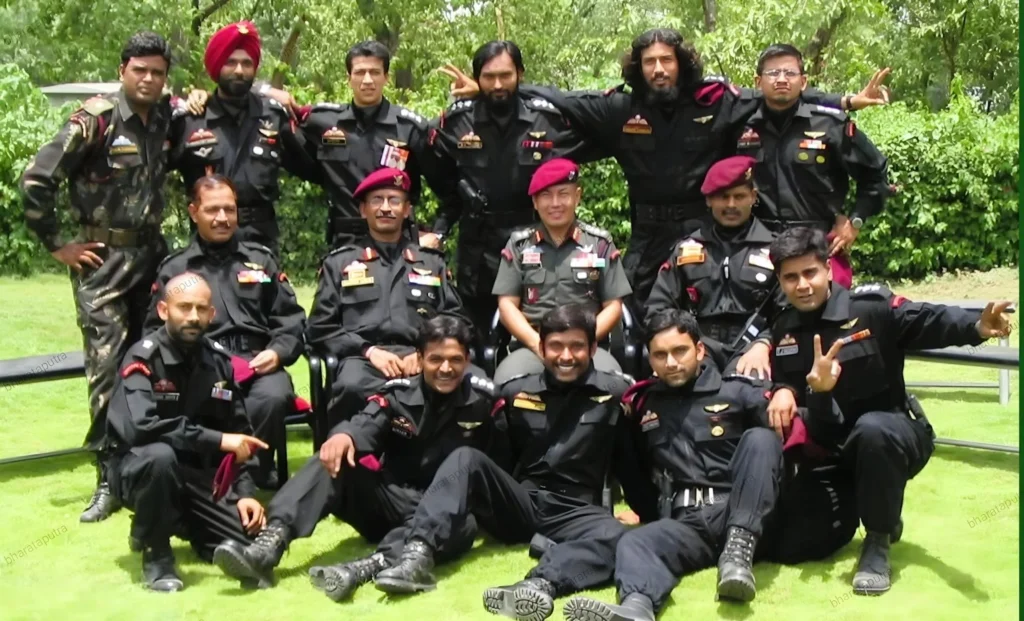Special Group India stands as one of the most enigmatic military units ever raised on Indian soil. Created in 1981 under the classified Project Sunray, this elite force was formed with a handpicked team of 250 personnel, each chosen for exceptional combat abilities and mental fortitude. Operating under the aegis of Research and Analysis Wing (R&AW), this shadowy unit has played a pivotal role in safeguarding national security through precision operations and unmatched tactical prowess.
Origins and Formation of Special Group (4 Vikas)
The 1962 Sino-Indian conflict exposed a critical capability gap in India’s defense apparatus, prompting the creation of a specialized covert unit. Project Sunray emerged in 1981 as R&AW’s strategic initiative to establish a high-performing special operations force.
Project Sunray: The Birth of Special Group
Project Sunray’s blueprint envisioned a combat-ready unit of unparalleled capabilities. A Para Special Forces officer was tasked with assembling an elite team of 250 operatives. This newly formed force was placed under the Directorate General of Security (DGS), a trusted wing of R&AW since 1968.
Initial Training by Mossad
In 1983, six operatives underwent rigorous training at a classified Israeli military facility, receiving mentorship from Mossad and Sayeret Matkal. Their training focused on:
- Urban warfare tactics
- Elite hostage rescue operations
- Advanced combat techniques
Evolution into the Modern Special Group
Over time, the Special Group’s mandate expanded beyond counter-terrorism to include sophisticated covert operations. Their combat capabilities grew through advanced training and strategic collaborations with global elite forces, such as:
- Mossad: Counter-terrorism operations
- CIA: Covert operations
- MI6: Intelligence gathering
Headquartered at Sarsawa, Uttar Pradesh, the unit conducts India’s most sensitive missions, seamlessly integrating international expertise with Indian military doctrines.
Special Group’s Elite Structure
The Special Group’s operational structure exemplifies military precision. Four squadrons, each divided into four 25-member troops, ensure tactical flexibility and mission effectiveness.
Command and Control Hierarchy
The unit operates under a robust chain of command:
- Strategic Command: Prime Minister through the Cabinet Secretariat
- Operational Control: Secretary (Research) – R&AW
- Tactical Command: Directorate General of Security
Each squadron specializes in specific operational domains, including intelligence operations, precision strikes, and counter-terrorism.

Advanced Training and Selection Process
The Special Group’s selection process is among the most rigorous in the world, surpassing even the legendary standards of Para SF and MARCOS. Candidates undergo:
- Physical Fitness: 100% score requirement
- Written Assessment: Minimum 50% marks
- Service Background: Preference for Para SF/SFF or exceptional personnel from other units
Specialized Combat Training
Operators master multiple warfare domains, including:
- Mountain Warfare: Training at the High Altitude Warfare School, Gulmarg
- Jungle Warfare: Advanced survival and combat techniques
- Maritime Warfare: Expertise in amphibious operations
- Airborne Insertion: Tactical freefall and high-altitude insertion skills
- Krav Maga: Close-quarters combat superiority
Weapons mastery and tactical simulation exercises ensure operators maintain peak battlefield readiness.
Notable Covert Operations
Special Group’s operational history is a testament to their strategic impact. Their classified missions have shaped India’s security narrative, demonstrating precision, adaptability, and tactical brilliance.
Operation Blue Star (1984)
Special Group played a decisive role during Operation Blue Star, showcasing their expertise in night combat and urban warfare. Their contributions included:
- Pre-Operation: Tactical planning and coordination
- Execution: Leading the assault with AK-47 rifles and night vision goggles
- Outcome: Successful mission completion
Counter-Terrorism and Cross-Border Operations
The unit excels in deniable counter-terrorism missions and strategic cross-border operations, such as:
- Eliminating Hizbul-Mujahideen leadership
- Conducting a rescue mission in Bangladesh (1980s)
- Preparing for high-stakes missions, including the 1999 Kahuta Nuclear Facility strike
During the IC-814 hijacking crisis in Kandahar, Special Group stood ready for intervention, showcasing their rapid deployment capability.
Modern Capabilities and Equipment
Equipped with state-of-the-art weaponry and advanced tactical systems, Special Group operators maintain battlefield dominance across diverse environments.
Weaponry and Gear
Operators wield cutting-edge combat systems, including:
- Assault Rifles: Multi-caliber options with advanced optics
- Sniper Systems: Long-range precision engagement
- Support Weapons: Area denial and suppression capabilities
- Specialized Gear: Night vision devices, thermal imaging systems, and tactical breaching tools
Mission-Specific Equipment
- Mountain Warfare: High-altitude survival systems
- Amphibious Operations: Combat diving apparatus
- Urban Combat: Close-quarters battle equipment and secure communication devices
Specialized vehicles and surveillance systems, such as tactical drones, further enhance their operational capabilities.
Conclusion
Special Group India’s legacy is defined by its unmatched tactical brilliance and unwavering dedication to national security. From its classified origins under Project Sunray to its status as India’s premier covert operations unit, the journey of these silent warriors exemplifies excellence in service to the nation. Through rigorous training, cutting-edge technology, and strategic foresight, the Special Group continues to safeguard India’s sovereignty, executing missions that remain etched in the annals of military history.
